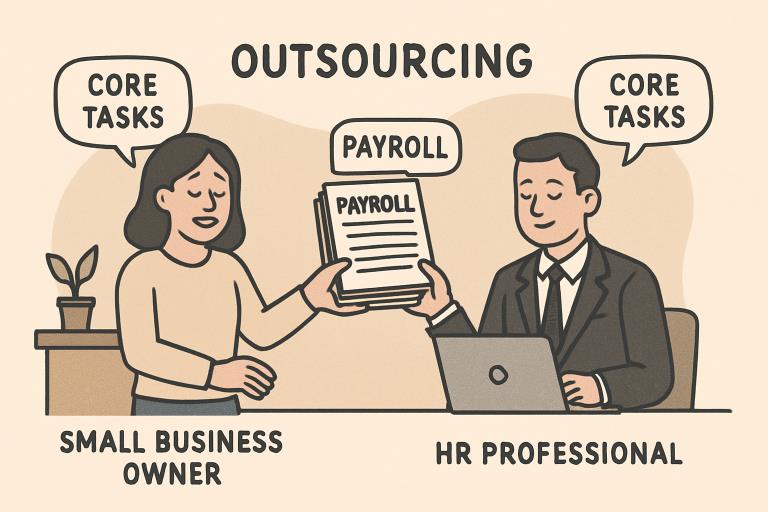Now Reading: A Complete Overview of Selling Your Home As Is Without Incurring Fees
-
01
A Complete Overview of Selling Your Home As Is Without Incurring Fees
A Complete Overview of Selling Your Home As Is Without Incurring Fees

Key Takeaways
- Selling your home “as is” means you sell without making repairs or updates, often resulting in a quicker transaction.
- This option can be ideal for those facing time constraints, limited budgets, or inheriting properties they cannot manage.
- It’s essential to understand the fee structures involved and ensure transparency to reduce hidden costs during your sale.
- Each selling method—from traditional agents to direct buyers—offers different tradeoffs in terms of speed, paperwork, and sale price.
- Protecting your interests requires awareness of local legal requirements and, if necessary, legal guidance
Understanding What It Means to Sell a Home “As Is”
Selling a home “as is” means you’re listing your property in its current state, declining to make repairs or offer concessions for improvements. Typically, buyers are made aware from the outset that they’ll take the house, flaws and all, with no warranties from the seller about its condition. This approach can be appealing to those seeking a quicker sale or who lack the time or resources to renovate a property.
Many sellers are drawn to “as is” transactions when hoping to avoid extra costs—particularly agent commissions or closing costs. If you want to experience a truly straightforward sale with No Fees, specific direct buyers or home-buying companies may be your best route. Unlike traditional sales, this method prioritizes speed, predictability, and cost savings for those who value convenience.
Key Motivations for Selling a Property As Is
The decision to sell “as is” often stems from necessity. Homeowners facing suddenly tight budgets may not have the funds to coordinate repairs after a job loss or life event. Sometimes, properties are inherited, leaving heirs with little desire or expertise to manage major renovations before selling. Additionally, aging homes or those with extensive repair needs usually attract home investors or buyers willing to accept risks in exchange for a deal. These investors often provide a quicker, hassle-free option for sellers who want to avoid the time and expense of repairs. Time can also be a factor. If you need to relocate quickly for a new job or family emergency, the benefits of bypassing drawn-out repairs are obvious.
What to Expect: The Process of Selling As Is
Selling a home as is typically involves a concise set of steps. You’ll start by determining a fair market price tailored to your home’s current condition. This is often followed by preparing the minimal required disclosures about the property’s issues, as laws still require sellers to inform buyers of known defects.
After marketing your home to reach the target audience—typically investors or cash buyers—you’ll receive offers, negotiate, and agree on the terms. Expect a significantly shorter timeline compared to traditional listings, with some “as is” sales closing in as little as 7 to 30 days. Keep in mind, though, that buyers who expect deep discounts might present a lowball.
Common Myths About Fees and Commissions
Many sellers are wary of hidden costs accompanying a quick or “as is” home sale, but not all transactions are created equal. Standard agent-assisted sales can introduce commissions of 5–6%, along with closing costs and potential repair credits requested by buyers. Companies or buyers advertising “no fee” sales cut out much of this expense, but it’s essential to read the fine print—some may still charge administrative, service, or title transfer fees.
Always compare multiple options and review every line of your contract to sidestep surprise charges. Transparent companies clearly outline what you can expect, so ask for a summary before proceeding. Understanding the difference between advertised “no fees” and expenses buried in paperwork is your first defense against disappointment.
Pros and Cons of an As-Is, Fee-Free Home Sale
Advantages
- Rapid closings and minimal delays.
- No out-of-pocket expenses for repairs or upgrades.
- Potentially no agent commissions or traditional closing costs.
- Lower stress and less paperwork.
Drawbacks
- Offers may come in below market value, reflecting buyer risk.
- Fewer interested buyers compared to move-in-ready homes.
- Less room for negotiation on price or contingencies.
When Does This Approach Make Sense?
Selling as is, without fees, is best for those who value speed and simplicity over extracting top dollar, such as owners with inherited or vacant homes, or those seeking immediate relocation.
Practical Tips for a Successful As-Is Sale
- Set a Reasonable Asking Price:Research local comparable sales and consider hiring an appraiser who specializes in distressed or “as is” properties.
- Market Your Home Effectively:Highlight its strengths (location, lot size, potential), and be upfront about its needs. Utilize online platforms, social media, and word of mouth to attract investor interest.
- Watch for Red Flags:Avoid buyers who hesitate to provide proof of funds or present contracts that are overly complex and unclear. Always consult a real estate attorney before signing anything you don’t understand.
Comparing Different Selling Methods
The best-selling strategy depends on your unique needs and circumstances. Traditional agent sales can bring higher prices but are often slower and more expensive. Direct buyers and investment companies offer rapid cash closings, but generally at discounted rates due to the risk they assume. According to NerdWallet, weighing speed, paperwork, and overall cost is essential in choosing your path.
- Traditional Agent Sales:Best for maximum price—expect more showings, negotiations, and contingencies.
- Direct Buyers and Cash Offers:Prioritize convenience and speed, suitable if you want to close in days or weeks.
- Expert Tip:Interview several buyers or agents and request a net sheet that clearly outlines your bottom line after all fees are factored in.
Staying Informed and Protecting Yourself
Real estate regulations differ widely by state and even by city. Always research your local legal requirements when selling as is, including mandatory disclosures and relevant contracts. In complex scenarios—such as inherited homes or title issues—hire a real estate attorney to safeguard your interests and prevent liabilities.
Valuable resources for learning more about selling options, including tips and legal considerations,
Takeaways for Sellers Considering an As-Is, Fee-Free Sale
Selling your home as is—with no fees—drastically simplifies the process and reduces the time to close, making it ideal for sellers who want to sell quickly and with minimal hassle.
Assess your priorities between convenience, sale price, and effort, and remember that transparency is key in avoiding surprise expenses.





















